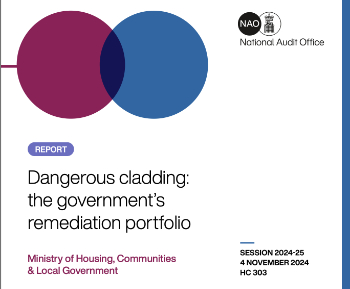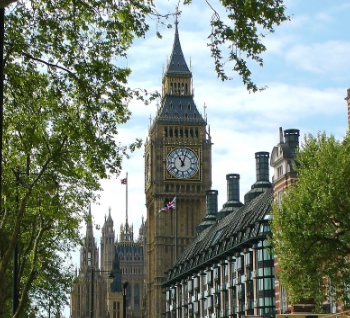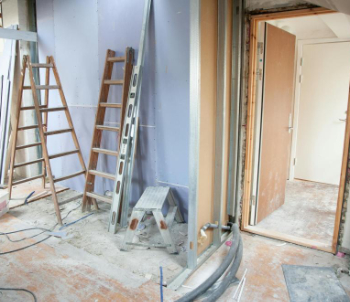Solving the fire and security skills shortage
Contents |
[edit] Make 2023 your year for fire and security training
Tom Brookes, Chairman of the FSA and MD of ZZeus Training, highlights the growing imperative for businesses to upskill their staff – and actively consider apprenticeships as a vital investment for the future.
[edit] The FSA membership is in danger of being caught up in circumstances largely (but not entirely) out of its control.
Firstly, we are facing a significant skills shortage, particularly in the fire engineering sector. And, secondly, the outcomes of the Grenfell inquiry and other changes to Standards and legislation are putting the spotlight on skills and competency in our sector.
The result is that the industry is experiencing high demand for engineers who can demonstrate the right level of skills and experience. That, in turn, is driving up remuneration and creating an environment where it's harder than ever to hang on to qualified staff who can be tempted away by significant increases in pay.
We have already seen a number of electricians taking courses to add fire alarms to their range of skills
Factors that were largely out of our sector’s control include the outcomes of the Grenfell Enquiry. For instance, industry Working Group Two, set up following the Enquiry, requires that fire operatives must be qualified to Level 3 (and Level 2 for security).
We are also facing an update to the Dutyholders’ Regulations in 2023, where we expect that anyone who is the building 'dutyholder' where design or building work is undertaken must use 'competent' operatives to carry out the work.
[edit] Focus on competence
The result of these changes, understandably, is that main contractors and building owners only want to work with fire alarm sub-contractors who can supply skilled staff with the necessary qualifications - and who can provide evidence, such as a Gold Card.
In addition to these changes, a current rewrite of BS5839 (Fire detection and fire alarms for buildings). Part 1, which focuses on fire alarm installation and maintenance, will include a new section on 'competence'.
As a business owner, I know that ensuring all employed operatives have an ECS Gold Card has been expensive but it’s also an investment
This will add a requirement for Continuing Professional Development (CPD) for operatives. The industry Working Group requested this change, so it is not surprising, but it’s not yet clear what CPD might look like for our sector. For example, will it mean training every six months? Or yearly?
Another area of uncertainty is the update of Part B of the Building Regulations (Fire Safety). Again, we don't know precisely what will be included, but we should certainly expect more focus on skills and competence.
While these changes were largely out of our control, our sector of the industry must take some responsibility. The fact is, we have enough people to carry out fire safety work, but many of them don't have the newly required qualifications. Unlike our colleagues in the electrical sector, we are still playing catch-up on formal qualifications. But in 2023, we can’t afford to lag behind - this is the year for FSA Members to put training and competence at the top of their business agenda.
[edit] FSA's role
The FSA is looking to make this more achievable and cost-effective for employers, without reducing the quality of the assessment.
As a business owner, I know that ensuring all employed operatives have an ECS Gold Card has been expensive but it’s also an investment. It’s also imperative for businesses to look at how they bring new people to the industry.
With our skills and knowledge in demand, it's an excellent time to consider taking on apprentices, and the framework is already in place. We have the excellent FESS (Fire Emergency and Security Systems) Apprenticeship Standard and we currently have around 1500 apprentices on this scheme. Anyone passing the assessment achieves Level 3 and is eligible for the Gold Card. They can also apply for ‘Eng Tech’ status with the IET (Institute of Engineering and Technology). It’s an attractive proposition for a young person looking for a long-term career in our industry.
The FSA is looking to make this more achievable and cost-effective for employers, without reducing the quality of the assessment
The course takes around three years (depending on a candidate’s prior learning) and is offered by several colleges around the UK. Moreover, government funding can provide £18,000 for employers taking on apprentices.
[edit] Looking ahead
We have already seen a number of electricians taking courses to add fire alarms to their range of skills. It not only generates additional business for them but also means that main contractors can use a single qualified and competent operative to install and commission the alarm system.
The FSA membership should benefit from these growing requirements for higher standards of training in our sector. The new requirements should also make it harder for less scrupulous operators to undercut reputable businesses, who are working to ensure safety and quality.
All this means it is crucial for FSA Members to take a proactive approach when developing in-company skills and competence, so that we can benefit from the opportunities, and meet the challenges, ahead.
This article appears on the ECA news and blog site as "Make 2023 your year for fire and security training" dated April 19, 2023 and was written by Tom Brookes, FSA Chair and MD of Lindum Fire Services.
--ECA
[edit] Related articles on Designing Buildings
- Approved document B.
- Articles by the Electrical Contractors' Association (ECA)
- Common principles of International Fire Safety Standard introduced.
- Electrical Contractors' Association (ECA)
- Fire and Security Association.
- Fire in buildings.
- Fire and rescue service.
- Fire performance of external thermal insulation for walls of multistorey buildings, third edition (BR 135).
- Fire safety design.
- Fire safety information.
- Fire (Scotland) Act 2005.
- Fire Weather Index FWI.
- Global overview analysis of fire and security.
- Grenfell Tower fire.
- HSG 168 Fire safety in construction.
- Industry backs leading fire and security awards.
- Managing fire risk in commercial buildings: A guide for facilities managers.
- Passive fire protection is a vital tool in any fire strategy.
- Scottish Advice Note addresses fire risk in multi-storey residential buildings..
- The Building Safety Bill and product testing.
- The Regulatory Reform (Fire Safety) Order 2005.
Featured articles and news
Cladding remediation programmes, transparency and target date.
National Audit Office issue report on cladding remediation.
HBPT and BEAMS Jubilees. Book review.
Does the first Labour budget deliver for the built environment?
What does the UK Budget mean for electrical contractors?
Mixed response as business pays, are there silver linings?
A brownfield housing boost for Liverpool
A 56 million investment from Homes England now approved.
Fostering a future-ready workforce through collaboration
Collaborative Futures: Competence, Capability and Capacity, published and available for download.
Considerate Constructors Scheme acquires Building A Safer Future
Acquisition defines a new era for safety in construction.
AT Awards evening 2024; the winners and finalists
Recognising professionals with outstanding achievements.
Reactions to the Autumn Budget announcement
And key elements of the quoted budget to rebuild Britain.
Chancellor of the Exchequer delivers Budget
Repairing, fixing, rebuilding, protecting and strengthening.
Expectation management in building design
Interest, management, occupant satisfaction and the performance gap.
Connecting conservation research and practice with IHBC
State of the art heritage research & practice and guidance.
Innovative Silica Safety Toolkit
Receives funding boost in memory of construction visionary.
Gentle density and the current context of planning changes
How should designers deliver it now as it appears in NPPF.
Sustainable Futures. Redefining Retrofit for Net Zero Living
More speakers confirmed for BSRIA Briefing 2024.
Making the most of urban land: Brownfield Passports
Policy paper in brief with industry responses welcomed.
The boundaries and networks of the Magonsæte.



























Comments
[edit] To make a comment about this article, click 'Add a comment' above. Separate your comments from any existing comments by inserting a horizontal line.